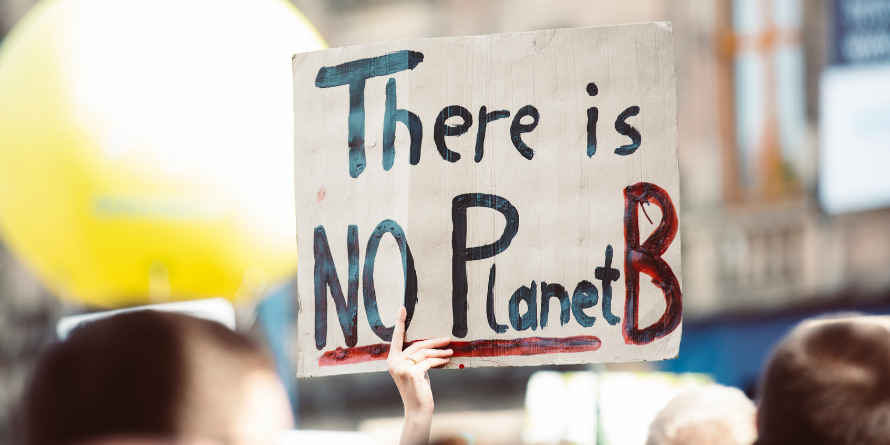Posted on: 19/08/2021
The Intergovernmental Panel on Climate Change (IPCC) released its report ‘Climate Change 2021: Physical Science Basis’ outlining the most recent update on the climate system and climate change. Chief Executive Officer, Robert Groves, shares his key takeaways from the report, highlighting the leading role of the energy sector in the journey to net-zero and what’s needed to address the climate emergency.
Last week’s IPCC report provided an eye-opening view of the current climate change landscape and urgent need for the world to respond now before irreversible damage to the planet is done. The report draws upon the developments that have been made since IPCC’s last report in 2013. It’s based on key scientific research and warns that the current trajectory and our response to date is not enough to limit global warming.
It is reassuring to see the report covered by many mainstream news outlets; this has been integral to accelerating discussions and raising awareness. This includes a response from Boris Johnson who reacted saying, “I hope today’s IPCC report will be a wake-up call for the world to take action now, before we meet in Glasgow in November for the critical COP26 summit.”
The electricity sector must continue to take a leading role in creating change and our core values as a business are centred around guiding our customers on their journey to net-zero. As a business that has been one of the first in the UK to do so, we will continue to support renewable generators and help our business electricity customers reach their sustainability goals. Below I’ve highlighted three warning points discussed in the report that really stood out for me.
Reaching net-zero is the bare minimum
The current goal, in accordance with the Paris Agreement, is to reach net-zero by 2050. However, with the latest estimates outline that this goal is the bare minimum. Edie’s first Net-Zero Business Barometer found that 45% of UK businesses are yet to set net-zero targets showing that there are a significant number of businesses yet to join the journey to net-zero. On the other hand, there are others who are ahead of the curve such as our customer, JLL (Jones Lang LaSalle) who have hit their 100% renewable energy target and are set to achieve their global net-zero goal by 2030.
We must move towards more ambitious goals such as going net-negative by using innovative approaches to remove more carbon emissions than emitted. Constantly working towards more ambitious goals will maintain the momentum needed to tackle the climate crisis.
Working towards science-based targets to achieve a cohesive goal
Business will benefit most by setting themselves incremental goals that feed into their bigger net-zero targets. These should be measurable targets that allow them to track their successes and failures in a tangible way and react accordingly. According to the Science Based Targets Initiative (SBTi), science-based targets should be in line with what the latest climate science deems necessary to meet the goals of the Paris Agreement and give a clear route for businesses to help reduce the worst effects of climate change.
We’re proud to supply our customers with renewable electricity products that have an energy label evidencing the origin of their electricity supply. Our renewable electricity products are certified by the Carbon Trust and conform to the Greenhouse Gas Protocol. This enables our customers to report zero carbon emissions for purchased electricity from SmartestEnergy when using the market-based reporting method. As ‘greenwash’ becomes an issue that more and more businesses must address, our energy labels help customers communicate their renewable energy procurement decisions with confidence in a format that employees, customers and stakeholders can easily recognise and understand.
Policymakers must get involved
The UK government has always set ambitious climate change goals and with the likely further stretch in these, we must now consider the additional new policies that will not only enable the delivery of what we have said we will do but also add to that.
Many experts have expressed their concerns and pointed to a policy gap that could lead to failure to reach our national targets. For example, the UK Government have set out a Transport Decarbonisation Plan to ban new petrol and diesel truck sales by 2040, but industry experts have noted that ‘the UK lacks a sufficiently comprehensive policy package to enable the delivery of the 2030 transition to low-carbon transport’.
There are promising signs with climate change being the key topic at the G7 summit and the upcoming COP26 in November hosted in Glasgow which will allow businesses to interact with Government and continue the conversation of accelerating action towards the goals of the Paris Agreement.
SmartestEnergy is committed to supporting our customers in leading the transition to net-zero. Our role within the energy sector is critical in demonstrating how our generators and business electricity customers can begin their journey to net-zero with our support. Last month we held our ‘Net Zero Week’ Festival to help educate businesses, consumers and the wider public about the UK's ambitious 2030 and 2050 net-zero targets. We gathered insights and perspectives from industry experts and our customers to ensure we continue providing the right products and innovative technology platforms to make this all-important transition to net-zero a feasible goal. I’m therefore optimistic the UK will continue to contribute and that companies like SmartestEnergy will play an increasing role in enabling that future.

 United States
United States Australia
Australia






